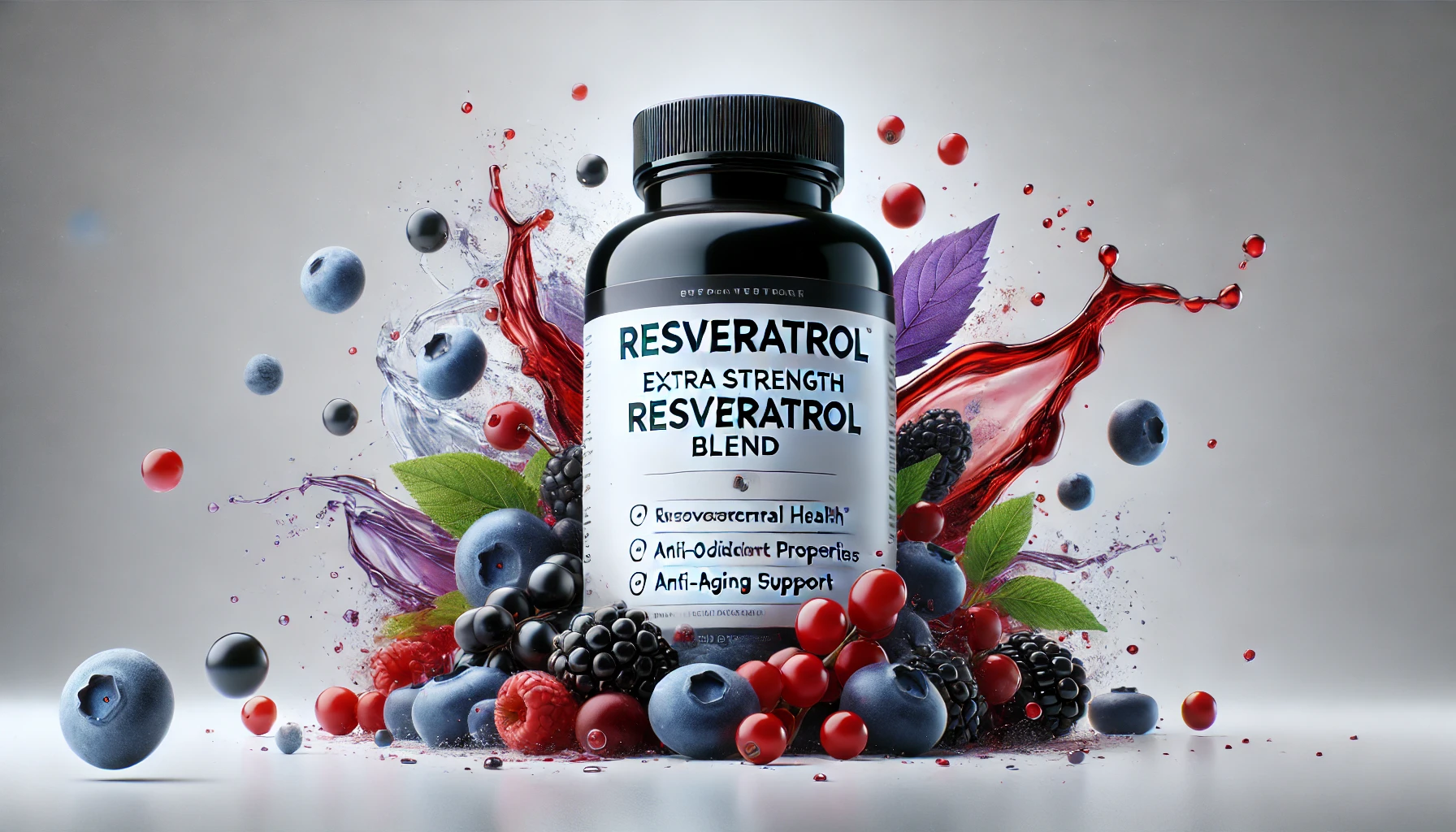This post was written with Consensus AI Academic Search Engine – please read our Disclaimer at the end of this article. Resveratrol, a polyphenolic compound found in grapes, berries, and peanuts, has garnered significant attention for its potential health benefits. This article explores the side effects and benefits of resveratrol supplementation based on recent research findings.
Benefits of Resveratrol Supplementation
Glycemic Control and Insulin Sensitivity
Resveratrol has shown promising effects on glycemic control and insulin sensitivity, particularly in patients with type 2 diabetes mellitus (T2DM). A study demonstrated that resveratrol supplementation significantly reduced fasting glucose, insulin levels, and insulin resistance while increasing insulin sensitivity in patients with T2DM and coronary heart disease (CHD)2. Another study found improvements in the Homeostatic Model Assessment for Insulin Resistance (HOMA-IR) index and fasting insulin levels in postmenopausal women5.
Cardiovascular Health
Resveratrol’s impact on cardiovascular health has been a focal point of research. In patients undergoing primary prevention of cardiovascular disease, resveratrol-enriched grape extract significantly reduced oxidized LDL (LDLox), apolipoprotein-B (ApoB), and LDL cholesterol levels8. Additionally, resveratrol supplementation improved HDL-cholesterol levels and decreased the total-/HDL-cholesterol ratio in T2DM patients with CHD2.
Anti-inflammatory and Antioxidant Effects
Resveratrol exhibits potent anti-inflammatory and antioxidant properties. In healthy smokers, resveratrol significantly reduced C-reactive protein (CRP) and triglyceride concentrations while increasing total antioxidant status (TAS) values6. Furthermore, resveratrol supplementation increased total antioxidant capacity (TAC) and reduced malondialdehyde (MDA) levels in T2DM patients with CHD2.
Cognitive and Cerebrovascular Benefits
Long-term resveratrol supplementation has been associated with cognitive and cerebrovascular benefits in postmenopausal women. A 24-month study reported significant improvements in overall cognitive performance, verbal memory, and cerebrovascular responsiveness5. These findings suggest that resveratrol may help slow cognitive decline associated with aging and menopause.
Pain Perception and Menopausal Symptoms
Resveratrol has also been found to improve pain perception and menopausal symptoms. A long-term study indicated that resveratrol supplementation reduced chronic pain and improved overall well-being in postmenopausal women7. These benefits were particularly notable in overweight individuals and were associated with enhanced circulatory function.
Side Effects of Resveratrol Supplementation
General Tolerability
Most studies report that resveratrol supplementation is well-tolerated with no serious adverse events. For instance, a study on T2DM patients found no significant adverse effects over a 6-month period1. Similarly, a 12-week trial in overweight and insulin-resistant subjects reported no significant side effects4.
Specific Adverse Effects
While generally safe, some studies have noted minor adverse effects. In a study involving obese men, resveratrol supplementation led to a slight increase in total cholesterol and triglycerides1. Another study reported no significant changes in liver enzyme concentrations, glucose, insulin, cholesterol, or blood pressure values in healthy smokers6.
Conclusion
Resveratrol supplementation offers several health benefits, including improved glycemic control, cardiovascular health, anti-inflammatory and antioxidant effects, cognitive and cerebrovascular benefits, and reduced pain perception and menopausal symptoms. While generally well-tolerated, some minor adverse effects have been reported. Further research is needed to fully understand the long-term safety and efficacy of resveratrol supplementation.
Disclaimer
The content presented in this blog is generated by Consensus, an AI-powered academic search engine, and is based on publicly available scientific literature. While every effort is made to provide accurate, up-to-date, and well-researched information, the content is intended for informational and educational purposes only. It does not constitute medical advice, diagnosis, or treatment. Always consult a qualified healthcare professional before making any decisions regarding medical conditions, treatments, or medications. The AI system’s analysis may not cover all perspectives, emerging research, or individual cases, and it is not a substitute for professional expertise. Neither the blog publisher nor the developers of the AI-powered search engine are responsible for any actions taken based on the information provided in this content. Use of this information is at your own risk. Citations to the original scientific studies are included for reference, but these studies should be reviewed in full and interpreted with the guidance of a healthcare or research professional.
If you are experiencing a medical emergency, please seek immediate attention from a healthcare provider.
